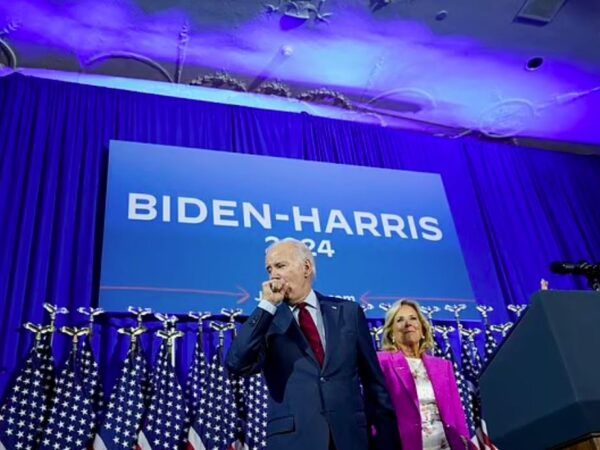Leaked report says WHO cancer group could declare aspartame carcinogenic
READ MORE: Everything you need to know about bombshell WHO ruling
By JOHN ELY SENIOR HEALTH REPORTER FOR MAILONLINE
An artificial sweetener added to thousands of fizzy drinks, chewing gums and low-calorie foods will be declared a potential cancer risk, a bombshell report claimed today.
Aspartame is set to be listed as ‘possibly carcinogenic to humans’ in a World Health Organization reclassification, according to insiders. It follows a major safety review into the artificial sugar replacement involving 1,300 studies.
Particular products containing aspartame — which entered the market in the 1980s — include Diet Coke, Dr Pepper and Fanta, as well as Extra chewing gum and Muller Light yoghurts. Some toothpastes, dessert mixes, and sugar-free cough drops also contain it.
The move will send shockwaves through the global food manufacturing market, with some of the world’s best-loved brands affected. A huge push to crackdown on sugar over the past few decades has led to the mass usage of artificial sweeteners such as aspartame.
Experts immediately questioned the International Agency for Research on Cancer’s (IARC) decision, calling the classification system used by the WHO’s subsidiary body ‘dumb’ and arguing that ‘the dose makes the poison’. Cancer Research UK explicitly states that artificial sweeteners such as aspartame don’t cause cancer.
Meanwhile, industry bodies claimed the IARC review consisted of ‘widely discredited research’ which ‘contradicts decades of high-quality evidence’.
Similar WHO-backed cancer warnings slapped on red meat, working overnight and using mobile phones have faced criticism for sparking needless alarm over hard to avoid substances or situations.

Particular products containing aspartame — which entered the market in the 1980s — include Diet Coke, Dr Pepper and Fanta, as well as Extra chewing gum and Muller Light yoghurts. Some toothpastes, dessert mixes, and sugar-free cough drops also contain it

Diet Coke was launched in 1982 as a healthier alternative to its original recipe and has been the subject of numerous marketing campaigns such as this example with model Kate Moss
The IARC ruling, yet to be publicly announced, is only intended to assess whether something is a potential hazard or not, based on all the published evidence.
It does not take into account how much of a product a person can safely consume.
That advice comes from the Joint WHO and Food and Agriculture Organization’s Expert Committee on Food Additives (JECFA), alongside national regulators.
JECFA is also reviewing aspartame use and will announce its findings on the same day that the IARC makes public its decision — on July 14, it was claimed.
Since 1981, the JECFA has said aspartame is safe to consume within accepted daily limits.
For example, an adult weighing 60kg (132lbs) would have to drink between 12 and 36 cans of diet soda — depending on the amount of aspartame in the beverage — every day to be at risk.
Its view has been widely shared by national regulators, including in the US and Europe.
An IARC spokesman said that both the IARC and JECFA committees’ findings were confidential until July.
But they added they were ‘complementary’, with IARC’s conclusion representing ‘the first fundamental step to understand carcinogenicity’.
The additives committee ‘conducts risk assessment, which determines the probability of a specific type of harm (e.g. cancer) to occur under certain conditions and levels of exposure’.
However, industry and regulators fear that holding both processes at around the same time could be confusing, according to letters from US and Japanese regulators seen by Reuters.
‘We kindly ask both bodies to coordinate their efforts in reviewing aspartame to avoid any confusion or concerns among the public,’ Nozomi Tomita, of Japan’s Ministry of Health, Labour and Welfare, wrote in a letter dated March 27 to WHO’s deputy director general, Zsuzsanna Jakab.
The letter also called for the conclusions of both bodies to be released on the same day, as is now happening.
The Japanese mission in Geneva, where the WHO is based, did not respond to a request for comment.
The leaked finding puts the sweetener below two more serious categories — ‘probably carcinogenic to humans’ and ‘carcinogenic to humans’ — suggesting evidence is limited.
IARC rulings can have a huge knock-on impact.
In 2015, its committee similarly concluded that glyphosate, a herbicide, is ‘probably carcinogenic’ — one grade above the expected aspartame ruling.
Years later, even as other bodies such as the European Food Safety Authority (EFSA) contested this assessment, companies were still feeling the effects of the decision.
Germany’s Bayer in 2021 lost its third appeal against US court verdicts that awarded damages to customers blaming their cancers on use of its glyphosate-based weed-killers.
The IARC’s decisions have also faced criticism for sparking needless alarm over hard-to-avoid substances or situations.
It has previously put working overnight and consuming red meat into its ‘probably cancer-causing’ class, and using mobile phones as ‘possibly cancer-causing’, similar to aspartame.
The IARC rankings list substances/hazards based on the evidence that they can cause cancer not of how high the risk of cancer is from exposure to a substance/hazards.
Frances Hunt-Wood, the secretary general of the International Sweeteners Association (ISA), said: ‘IARC is not a food safety body.
‘The JECFA is currently conducting a comprehensive food safety review of aspartame and no conclusions can be drawn until both reports are published.
‘Aspartame is one of the most thoroughly researched ingredients in history, with over 90 food safety agencies across the globe declaring it is safe, including the European Food Safety Authority, which conducted the most comprehensive safety evaluation of aspartame to date.’
The body, whose members include Mars Wrigley, a Coca Cola unit and Cargill, added that it had ‘serious concerns with preliminary speculation’ of the IARC review, which ‘may mislead consumers’.
The International Council of Beverages Associations, a body that includes Coca-Cola in its members, also said the leak was concerning.
Its executive director Kate Loatman said: ‘Public health authorities should be deeply concerned that this leaked opinion contradicts decades of high-quality scientific evidence and could needlessly mislead consumers into consuming more sugar rather than choosing safe no- and low-sugar options – all on the basis of low-quality studies.
‘Even IARC agrees it is not the appropriate authority to undertake risk assessment based on actual consumption and that it “does not make health recommendations”.
‘We remain confident in the safety of aspartame given the overwhelming weight of scientific evidence and positive safety determinations by food safety authorities in more than 90 countries around the world.’
Gideon Meyerowitz-Katz, an epidemiologist who regularly debunks questionable health studies has criticised the IARC’s rating system as ‘dumb’.
Writing on Twitter, he said: ‘No one really cares if it is POSSIBLE that a substance causes cancer. Acrylamide, which is in coffee and toast, causes cancer.’
‘They care if it’s LIKELY that something causes cancer.’
Other experts also highlighted the safety of aspartame.
Dr John Sievenpiper, an expert in medicine at University of Toronto, said: ‘Aspartame has proven to be a safe tool to reduce calories and sugars in the diet and is one of the most extensively studied ingredients with over 40 years of high-quality science supporting its safety.
‘The best available evidence from large population studies shows that low and no-calorie sweeteners as a replacement strategy for added sugars is associated with reductions in important public health outcomes such as obesity, cardiovascular disease and death.’
Professor Tom Sanders, an expert in nutrition at King’s College London, said: ‘Aspartame had been used safely in the UK for over 30 years.

Aspartame is used to sweeten a variety of food and drinks, including sodas, both diet, and regular, as well as chewing gums and some desserts (stock image)
‘As far as I am aware there is no evidence from human prospective studies linking aspartame use to cancer and regulatory authorities have extensively reviewed the toxicological data and given aspartame a clean bill of health.’
He added that animal studies had also delivered mixed results on aspartame, with the quality of the data used being ‘questioned’.
Professor Oliver Jones, an expert in chemistry at the RMIT University in Melbourne, said: ‘It is also important to note that just because something may possibly cause cancer does not mean that it automatically does if you are exposed to it.
‘The dose makes the poison.
‘For example we know UV light in sunlight causes cancer, that’s why we put on sunscreen at the beach – but we don’t put on sunscreen when we go outside in winter even though we are still exposed to sunlight, why? Because the dose is lower in winter.’
But the news from the IARC is a vindication of UK academics, such as Professor Erik Millstone at the University of Sussex.
A research paper by Professor Millstone and Dr Elisabeth Dawson argued that – since 1974 – scientists have warned of the risks of liver and lung cancer, and brain lesions.
He said: ‘Evidence showing that we could not be sure that aspartame is safe has been available since the mid-1980s, and reliable evidence that it can cause cancer in laboratory animals emerged in 2005 and has subsequently strengthened.
‘It is sad that several large food and beverage companies, and their trade associations, have been trying to discredit the IARC.
‘They are attacking the messenger for providing a message that they don’t welcome.
‘IARC is more reliable that almost all other official bodies because it excludes individuals with commercial conflicts of interest, while many governments do not.’
Meanwhile, the Food Standards Agency (FSA) said it would examine the JEFCA report before deciding ‘whether any further actions are needed.’
Deputy Chief Scientific Adviser, Rick Mumford, said: ‘Our view is that the safety of this sweetener has been evaluated by various Scientific Committees and it is considered safe at current permitted use levels.’
The IARC’s potential ruling follows an observational study in France among 100,000 adults last year, which showed people who consumed larger amounts of artificial sweeteners — including aspartame — had a slightly higher cancer risk.
The paper itself followed an Italian study the early 2000s, which reported that some cancers in mice and rats were linked to aspartame.
However, the first study could not conclusively prove aspartame caused the raised cancer risk.
Questions have been raised about the methodology of the second study, including by EFSA, which assessed it.
Aspartame is authorised for use globally by regulators who have reviewed all the available evidence, and major food and beverage makers have for decades defended their use of the ingredient.
The IARC said it had assessed 1,300 studies in its review.
Listing aspartame as a possible carcinogen is intended to motivate more research, said the sources close to the IARC, which will help agencies, consumers and manufacturers draw firmer conclusions.
But it will also likely ignite debate once again over the IARC’s role, as well as the safety of sweeteners more generally.
Last month, the WHO published guidelines advising consumers not to use non-sugar sweeteners for weight control.
The guidelines caused a furore in the food industry, which argues they can be helpful for consumers wanting to reduce the amount of sugar in their diet.







